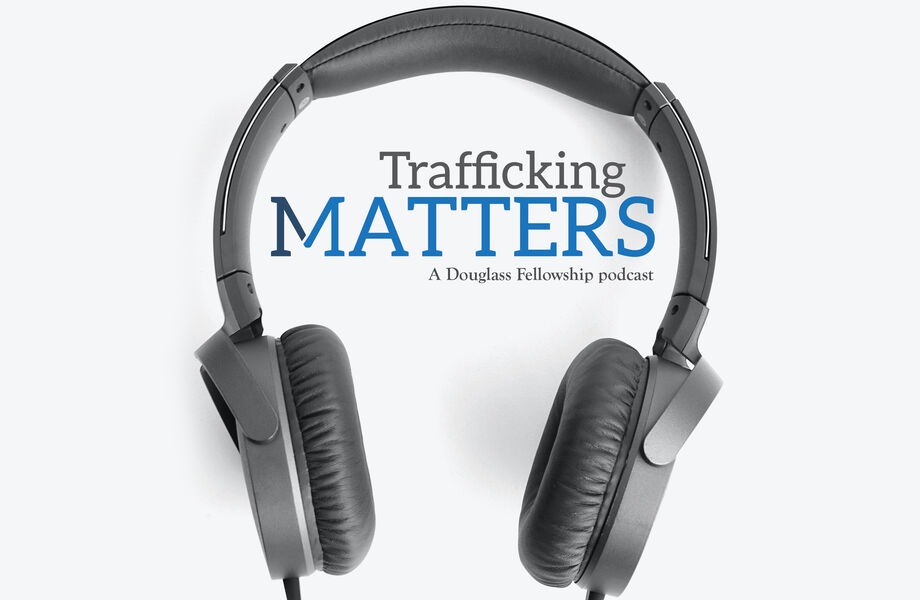Human trafficking is a complex issue. It should come as no surprise that representing survivors in our current legal system presents many unique challenges. By using a trauma-informed approach, lawyers can overcome these challenges and ensure that a survivor’s needs come first—perhaps for the first time in their lives.
Human trafficking includes sex trafficking and forced labor—both of which involve grave injustices. Sex traffickers use force, fraud, or coercion to force victims into commercial sexual exploitation,1 while labor traffickers use these same methods to force victims to perform some type of labor.2 Victims of both sex trafficking and forced labor often suffer severe trauma at the hands of their traffickers due to prolonged physical and emotional abuse.3 Often, this trauma continues to affect individuals even after they are no longer being trafficked.4 For survivors of human trafficking, pursuing justice can be as challenging as it is rewarding.
Processes like testifying against a former trafficker or submitting a vacatur petition can help a survivor obtain closure and move forward with their life. However, despite being a vehicle for justice for some survivors, engaging with the legal system can also be retraumatizing. Testifying against a trafficker and submitting a vacatur petition both require the survivor to recall and reveal intrusive and painful memories. To participate in these processes, not only do survivors have to recount details about these memories, but they also then have to explain their past to strangers who may have little understanding of trafficking or background in working with trauma survivors.5 For these reasons, it is important for lawyers to use a trauma-informed approach to best support and advocate for survivors.
What is Trauma-Informed Lawyering?
Trauma-informed lawyering “puts the realities of the clients’ trauma experiences at the forefront,” tailoring legal services to the individual client.6 Using a trauma-informed approach does not just benefit the survivor; it also assists lawyers in navigating the unique obstacles they face in aiding survivors. For example, trauma can cause long-term challenges such as memory loss, loss of executive functioning, and inconsistencies in statements,7 which can lead a judge who lacks an understanding of the intricacies of trauma to think a survivor is lying. A lawyer who is well-informed about these realities can more effectively advocate for their client by educating other professionals within the justice system.
The primary role of a trauma-informed attorney is assisting survivors of trafficking with their legal needs in a victim-centered way that consistently prioritizes their safety and well-being. Survivors may have a variety of legal needs due to the pervasive negative effects of human trafficking. They may face criminal charges for crimes they were forced to commit while being trafficked, such as prostitution or drug use. In these cases, survivors may need public defense. If convicted of these crimes, survivors may have difficulty restoring their lives. When a survivor has criminal charges that will be flagged during a background check, basic things like finding a job, obtaining a lease, or receiving a loan become incredibly difficult. For this reason, victims with criminal records will need assistance submitting a vacatur petition to clear their criminal record. A vacatur petition allows survivors to remove nonviolent arrests or convictions they have on their record if the court finds the commission of the crime was a direct result of being a victim of human trafficking.8
Survivors may also need a legal advocate to represent them in civil suits related to family law, employment law, public benefits access, and rights enforcement.9 Another key area where survivors may need legal help is immigration matters. There are three main forms of immigration relief for victims of human trafficking: Continued Presence, T visas, and U visas.10 Continued Presence allows victims of human trafficking to stay in the United States during an ongoing human trafficking investigation and prosecution.11 T visas, or the T nonimmigrant status, provides immigration protection to victims of severe trafficking who aid law enforcement in the investigation and prosecution of human trafficking cases.12 Similarly, U visas, or the U nonimmigrant status, also provides immigration protection to victims of certain crimes who assist in the investigation and prosecution process.13 If a victim is a foreign national, an immigration attorney can analyze the victim’s options and assist them in filing the correct application.
While serving any legal needs a survivor may have, attorneys should constantly be thinking about how they can reduce re-traumatization while still vigilantly fighting for their client. Adopting trauma-informed practices can not only reduce re-traumatization, it can also help empower victims by allowing them to regain control in their lives. By emphasizing client control and giving victims a voice in decision-making by encouraging them to exercise their agency, attorneys can help counteract a victim’s feelings of powerlessness caused by past traumas.14
Human trafficking prosecutions are another opportunity for trauma-informed lawyering. A trauma-informed prosecutor or attorney representing the survivor’s interests in a prosecution can help influence how the case is handled and make the process more comfortable for the victim by ensuring that a survivor’s input and objections are communicated to the appropriate parties.15 Survivors are often hesitant to help prosecute their traffickers for a variety of reasons: they may fear for their safety, or they may want to avoid the painful process of being cross-examined about traumatic experiences in front of a judge and a jury. Survivors may also be hesitant because they have a connection or bond with their trafficker. Although it may seem counterintuitive that survivors would want to protect someone who abused them, some survivors experience the phenomenon of trauma bonding, a psychological response to abuse where a victim forms an unhealthy bond with their abuser.

Even after a survivor testifies, there may not be enough evidence to convict an alleged trafficker, leaving the survivor feeling as though he or she was retraumatized without good reason.16 Without trauma-informed lawyering, a survivor’s needs may be overlooked in the criminal justice process because the focus is on punishing the offender.17
Trauma-informed lawyering sometimes means offering survivors alternatives or supplements to traditional retributive justice. Retributive justice is a system of criminal justice focused on the punishment of offenders.18 In the human trafficking context, prosecuting a trafficker so that he or she receives a prison sentence is an example of retributive justice. Because pursuing retributive justice, which focuses on punishing the offender, can sometimes leave survivors feeling unfulfilled lawyers should inform survivors of a potential complement to this form of justice called “restorative justice.” In contrast to retributive justice practices, which are primarily governed by criminal justice organizations and actors, “restorative justice practices are guided by the individually defined needs of survivors.”19 Restorative justice acknowledges that crime harms victims, communities, and the offender.20 As a result, this form of justice focuses on repairing the harm caused by criminal behavior rather than on simply punishing the offender.21 One example of restorative justice is Victim Offender Dialogue, where a facilitator oversees direct dialogue between the victim and offender about the crime committed.22
Not all survivors’ restorative justice experiences will be the same. Just like testifying can be retraumatizing, sitting face to face with a trafficker can be an intimidating experience. In a study by the Urban Institute, researchers asked survivors whether certain restorative justice practices would help them feel like they achieved justice.23 The study revealed that more labor trafficking survivors would like to confront their traffickers, while sex trafficking survivors were split on the issue.24 Although restorative justice practices are not appealing to all survivors, for some, this experience can provide healing and closure because it focuses on the survivor’s needs and gives them active control over the process. Thus, lawyers using a trauma-informed approach should inform their clients of restorative justice opportunities and offer the requisite resources if a survivor is interested.
An Attorney’s Role in Trauma-Informed Systems
Ideally, trauma-informed lawyers participate in a larger “trauma-informed system” that holistically supports survivors through a variety of victim services.25 Clear coordination and communication among different community partners are imperative to ensuring a survivor is receiving trauma-informed care. There are many different players in any human trafficking case or vacatur petition proceeding including judges, advocates, civil pro bono attorneys, prosecutors, and public defenders.26 In addition, there are a wide range of nongovernmental partners that provide critical victim services, from supportive housing and job training to case management and counseling.
A great way for attorneys to contribute to these goals is to connect with regional task forces or help form local coalitions that require stakeholders to participate in multidisciplinary trainings led by victim service providers and mental health practitioners.27 Trainings on what it means to be trauma-informed will help ensure that all stakeholders with whom a survivor may interact better understand the force, fraud, or coercion survivors have endured, and the ways a survivor’s trauma might manifest itself throughout a trial or vacatur petition proceeding. Effective communication and coordination among community stakeholders can also reduce the risk of re-traumatization for survivors. For example, cooperation between jurisdictions in a state where a survivor has convictions in multiple geographic areas can eliminate the need to conduct multiple painful interviews about a survivor’s experience.28
***
By adopting trauma-informed practices, lawyers can help make pursuing justice a more positive and empowering experience for human trafficking survivors.
The opinions expressed are solely those of the author and do not reflect or express the views or opinions of the Human Trafficking Institute or Trafficking Matters.
- 1U.S. DEP’T OF HOMELAND SEC., What is Human Trafficking?, BLUE CAMPAIGN, https://www.dhs.gov/blue-campaign/what-human-trafficking.
- 2See id.
- 3Heather J. Clawson et al., Treating the Hidden Wounds: Trauma Treatment and Mental Health Recovery for Victims of Human Trafficking, 1, 1-2 (2008), https://aspe.hhs.gov/system/files/pdf/75356/ib.pdf
- 4See id.
- 5See Erin Marsh et al., State Report Cards Grading Criminal Record Relief Laws for Survivors of Human Trafficking, 1, 6 (2019), https://polarisproject.org/wp-content/uploads/2019/03/Grading-Criminal-Record-Relief-Laws-for-Survivors-of-Human-Trafficking.pdf.
- 6Sarah Katz & Deeya Haldar, The Pedagogy of Trauma-Informed Lawyering, 22 CLINICAL L. REV. 359, 361 (2016).
- 7See U.S. DEP’T OF JUSTICE, Victim Interview and Preparation, OFFICE FOR VICTIMS OF CRIME, https://www.ovcttac.gov/taskforceguide/eguide/5-building-strong-cases/53-victim-interview-preparation/.
- 8CAL. PEN. CODE § 236.14 (West).
- 9See U.S. DEP’T OF JUSTICE, The Legal Rights and Needs of Victims of Human Trafficking in the United States, OFFICE OF VICTIMS OF CRIMES, https://ovc.ojp.gov/sites/g/files/xyckuh226/files/media/document/HT_Legal_Rights_Needs
_fact_sheet-508.pdf. - 10See U.S. DEP’T OF HOMELAND SECURITY, Information for Law Enforcement Officials: Immigration Relief for Victims of Human Trafficking and Other Crimes, BLUE CAMPAIGN, 1, https://www.dhs.gov/xlibrary/assets/blue-campaign/ht-information-for-law-enforcement-officials-immigration-relief-for-victims-of-human-trafficking.pdf.
- 11Id.
- 12Id. at 2
- 13Id.
- 14See Eliza Patten & Talia Kraemer, Establishing a Trauma-Informed Lawyer-Client Relationship, https://www.americanbar.org/groups/public_interest/child_law/resources/child_law_
practiceonline/child_law_practice/vol-33/october-2014/establishing-a-trauma-informed-lawyer-client-relationship/. - 15See MINN. DEP’T of PUB. SAFETY, supra note 10, at 10.
- 16See id. at 237.
- See Carina Patritti, Restoring Human Trafficking Victims Through Victim-Offender Dialogue, 12 CARDOZO ONLINE J. CONFLICT RESOL. 217, 228 (2010).
- 18See Lilly Yu et al., Alternative Forms of Justice for Human Trafficking Survivors: Considering Procedural, Restorative, and Transitional Justice, 1, 1 (2018), https://www.urban.org/sites/default/files/publication/97341/alternative_forms_of_justice_
for_human_trafficking_survivors.pdf. - 19Yu, supra note 12, at 9.
- 20See Tutorial: Introduction to Restorative Justice, CENTRE FOR JUSTICE AND RECONCILIATION, http://restorativejustice.org/restorative-justice/about-restorative-justice/tutorial-intro-to-restorative-justice/#sthash.sPocNuyh.dpbs.
- 21Id.
- 22See Patritti, supra note 13, at 217.
- 23See Yu, supra note 12, at 9–11.
- 24See id.
- 25Katz, supra note 6, at 363.
- 26See Jessica Kitson & Kate Mogulescu, Workable Solutions for Criminal Record Relief: Recommendation for Prosecutors Serving Victims of Human Trafficking, 1, 10 (2019), https://www.americanbar.org/content/dam/aba/administrative/domestic_violence1/SRP/
aba-cdsv-workable-solutions.pdf. - 27See MINN. DEP’T of PUB. SAFETY, Best Practices Guidelines: Crime Victim Services, 1, 16 (2010), https://ovc.ojp.gov/sites/g/files/xyckuh226/files/pubs/InnovativePractices/Practices_Best
%20practices%20guidelines-508.pdf. - 28See Kitson & Mogulescu, supra note 9.




